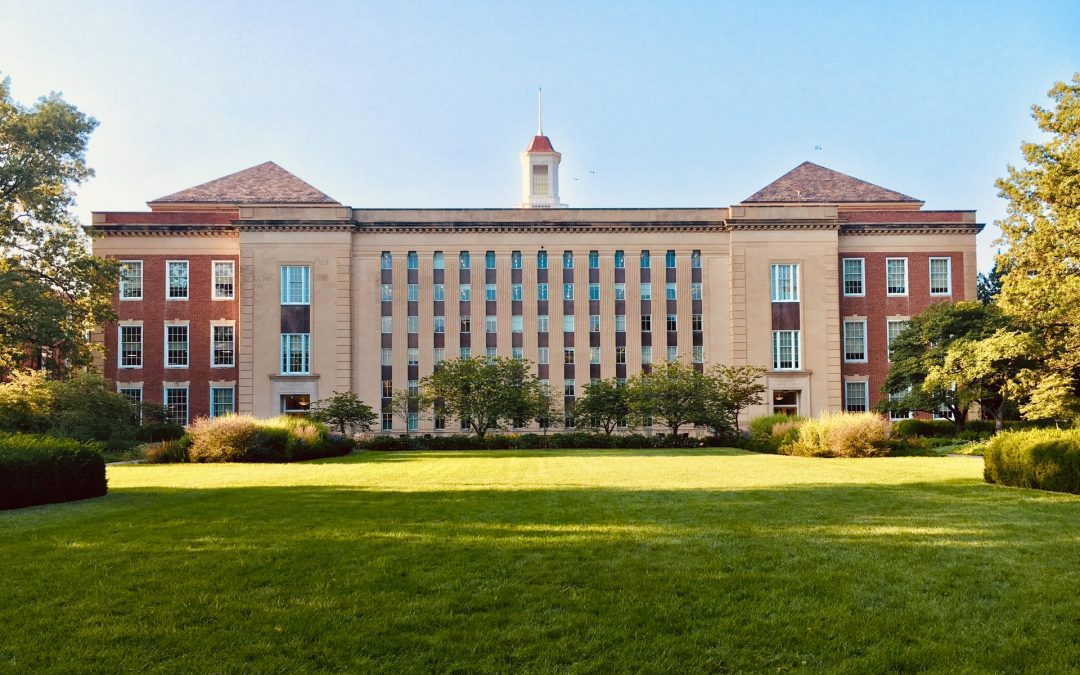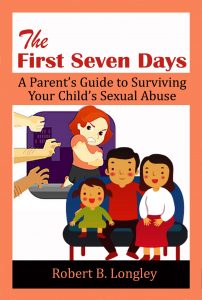
Sexual Assault
Earlier this week Secretary of Education Betsy Devos announced that she would be rolling back some Obama era campus sexual assault policies. Some are seeing this as a Trump administration assault on women’s rights. Others see is as a more balanced approach to the problem of college sexual assault. The jury is still out. The current approach is more focused on the needs of victims, but it is clearly an imperfect system for all concerned.
This is just the latest in a series of changes in policies and approaches that I have been unlucky enough to have a front row seat on for the past 30 years. I was a senior at Lehigh University when Jeanne Clery was murdered in her dorm. After winning a lawsuit against the university, her family led the charge for uniform crime reporting on college campuses. The Clery Act has been the core of sexual assault reporting on college campuses, but it doesn’t solve all the problems. Having had sexual assault impact my own family over the years, I’ve taken an interest in ways to improve the experience for victims and their families through writing and creating case management software for sexual assault – http://www.advocacypro.com .
Sexual Assault Challenges to Colleges
College is an absurd place where the rules of society don’t always apply. Most of it is written off as just part of the college experience, but not always. The estimate that 1 in 4 women will experience some form of sexual abuse during the college experience has been a wake up call for many colleges and universities. Only about 15% will actually come forward about their experience.
Some sexual assaults are clear instances of rape. Others are less cut and dry. Signed consent forms are a solution for some schools to cut down on “he said, she said” instances. Do we really have to go that far though? Maybe. Many schools have a policy that assumes being drunk means unable to consent. It’s probably a good assumption, but does that cover both people being drunk? These are some of the details that cloud many sexual assault cases on campuses.
Legal or Disciplinary
Schools tend to take either a legal or disciplinary approach to sexual assaults. Some let the police handle cases; others bring the issue before a disciplinary committee. There are advantages and disadvantages to both. The issue that the Devos decision is likely to impact is how the accused are handled. Labeling someone as a rapist is a bell that is hard to un-ring. Even if the accused is not found guilty, the stain of being accused doesn’t go away. Also, police and disciplinary committees don’t always get it right. This can leave all parties with a negative experience.
Schools can also be at risk based on how they handle situations. Failure to record assaults or provide services to victims can at a minimum result in Clery Act and Title IX violations. Many cases go further and result in multi-million dollar civil settlements. Most lawsuits and victimizations could have been avoided with better education, record keeping and service availability.
Common Sense Choices
Regardless of what political forces may be at play, doing nothing and waiting is never a good idea. There are some common sense steps that all schools should take to both reduce sexual assaults and ensure better outcomes when it does happen.
- Provide mandatory sexual abuse education to all students and staff every year. You can’t fix a problem if you don’t talk about.
- Provide apps for campus safety notification like http://www.campusorb.com
- Provide a support line, direct message or chat channel for students to report or discuss sexual assaults before making a formal report.
- Use a victim focused case management system such as http://www.campussafetypro.com to ensure a continuum of care between campus police and counseling resources. Clery Act reporting alone doesn’t always support the needs of victims.
- Be transparent about crime statistics on campus and make a commitment to providing a safe environment for victims to report.
- Provide individual and group counseling services regardless of need to provide proof of assault.
These are just some of the easier fixes that any college can take while policies are being hashed out. I encourage schools to add to this list and share what works for them. The problem of campus sexual assault is not going to be fixed by policies from Washington. We have to all work on it together.
Let us know if we can help you dealing with your family’s sexual abuse situation. For ideas to get started please check out our book on what to do during the early days after disclosure.

Sexual Assault
The University of Virginia is the latest college to be in the spotlight over rape on campus. Starting with the brutal rape of Hannah Graham, the media lens was already pointed at UVA. Then the Rolling Stones article about a gang rape came out that even Rolling Stones admitted contained factual errors. Now you have a situation where inaccuracies in an article bring into question the accuracy of the original report. It’s not fair. The University of Virginia is now a culturally divided campus with verbal and physical attacks against the accused and the accuser. So what’s the solution? That really depends on what the problem is.
Colleges are Artificial
Throughout most of human history education has been a community endeavor. It starts with parent to child, may evolve to a centralized community model, and often evolved into an individual mentor/apprenticeship arrangement. There was a continuum and logical path to follow through the community. Then a few hundred years ago the modern college emerged. It makes sense for a lot of reasons – specialization, consistency of information, ability to develop expertise, focus, etc. It also creates some problems in the process. You are creating a large same same age population which operates by it’s own set of rules that are different than the community that all of it’s members come from. Add in the dimensions of personal freedom, free flowing drugs and alcohol, sexual discovery, and normal social rules are going to be subverted.
Fraternities and sororities add their own dimensions to the problem. Whether it is a college, prison, or the military, same sex environments create abhorrent behavior. Just read Lord of the Flies and you will see the negative potential of homogeneous groups. Anyone who has been a member (excluding prison) will also argue the positive aspects – myself included. I have some great memories from college and the military, but I have more than a few stories of the negatives as well. Everything is magnified – the good and the bad. In normal communities, there are rules and checks and balances that level things out. College students sort of make up their own rules, and now the problems are starting to come to light.
30 Years of Problems
The problems have probably always been there but we only really get a glimpse if we are in it ourselves. As the parent of a college student I get to see that things haven’t changed that much in 30 years. Most stories of campus rape will reference the Clery Act which covers crime reporting requirements for colleges. This was the first comprehensive step to address the problem of crime on college campuses. While I’ve covered this in other posts, I went to school with Jeanne Clery and remember when she was murdered. Sadly I remember more about what happened after than about Jeanne herself. The case was atypical for a variety of reasons, but it set the stage for change. Insurance companies have done a lot to curb some of the problems of college environments by including denial of coverage clauses around serving minors and other activities. Unfortunately, the campus often adjusts and eventually works around the new rules.
Fixing the Problem of Rape on Campus
Most schools have some form of a zero tolerance program when it comes to sexual assault on campus. That doesn’t mean they have zero problems, or are going to any time soon. I would suggest if a school has no problems with rape on campus, it isn’t looking very hard. Even if we cut the current problem in half, it would be a huge improvement. So what are some things that will improve the situation?
Mandatory Education on Sexual Abuse – Sexual abuse exists largely because of a lack of education. I believe all students and staff should be required to attend at least an hour annually regarding campus sexual abuse. Everyone should be educated on what the risks are, and what to do if it happens. Students should also know what behaviors are considered offenses and what is considered consent.
Fix the Process
Improve the reporting – investigation – discipline process – Many schools treat sexual assaults as inconvenient black marks that hinder recruiting. There are more than a few cases where schools tried to make the problem go away, or they make it so difficult to follow through on a sexual assault report that many victims simply give up. As an example, the University of Virginia last year had 38 reports of sexual assault. 9 o f these reports were formally investigated and only 4 were followed all the way through. There may be a variety of valid reasons for this, but I’m guessing the process being difficult for victims is a contributing factor. Sexual abuse is already under-reported so making it difficult to report only makes the problem worse. Students should know in advance how the process works and be provided support through the process so they don’t get frustrated and drop it. Colleges should invest in victim case management software to improve the process for everyone. It makes for a better experience for victim, helps prevent Title IX violations, and provides insight into what is happening from report initiation to report closure.
Building a Foundation
Help victims transition their experience from burden to foundation – sexual abuse is like a virus because it can be years from contact until symptoms appear. Also people often suffer for years before getting help. It is a burden that many people suffer silently because of shame, they felt they waited too long to say anything, or other reasons. Schools should help victims reframe their experience. It may still be the worst thing that ever happened in your life, but it can be the foundation or a burden. Part of this is choice, and part of it is being shown the possibility. The worst experiences in the world create extraordinary character. Look at Victor Frankl, Nelson Mandela, Oprah, and others who have endured extreme hardship and abuse. The bad stuff in their life never went away, they just positioned themselves above it rather than under it. It’s not an easy transition, but anyone can learn to do it. Since we go to college to learn, this is probably one of the most important lessons anyone can learn.
Let us know if we can help you dealing with your family’s sexual abuse situation. For ideas to get started please check out our book on what to do during the early days after disclosure.

Sexual Assault
Sexual Assault Explosion
Seems like everywhere you look in the media today, another college sexual assault scandal is erupting on a college campus somewhere. I think Jerry Sandusky and Penn State got the ball rolling for most people. The reality is that people are starting to talk about sexual abuse – a subject that most people wouldn’t even discuss in private. It’s sort of a domino effect in social awareness more than an epidemic of sexual abuse. The problem has always been there. It’s just that we are talking about, and victims are feeling empowered to come forward and be heard.
Tip of the Iceberg
For a long time the estimate was that only 15% of sexual assaults get reported. I’d like to believe that the percentages of disclosure are going up, and not the incidents of abuse. One in three girls and one in five boys will experience some form of sexual abuse by the time they are 18. College sexual abuse is somewhat less well documented due to a variety of factors, Peer pressure, alcohol, and the expectation of being an adult all contribute to a murky sexual environment. He said, she said and songs from the Dead Kennedy’s set the tone for a complex problem. And lets not forget the ever forbidden, student teacher relationship. What’s appropriate varies from college to college. The numbers are just going to keep going up as more victims come forward, and more feel safe to do the same.
The Challenge of Campus Police
In some respects campus police are part of the problem and the solution. It’s been a long time since I was in college, but back in the day campus police were more concerned with getting you safely back to the dorm to sleep off whatever you had been doing. Question about laws that might have been broken weren’t generally asked unless someone was seriously injured or worse. Kids will be kids, so just try to make it as safe as possible for them.
Those days started coming to an end in early 1986 when a freshman at my school was raped and murdered. It made the national news, was followed by a series of lawsuits and through the dedicated work of her parents, a new law came into being. The Clery Act required schools to start tracking crimes on college campuses. It was a giant step forward, but a rape on campus was still little more than a checkbox on a form.
Fast forward to today and you are seeing schools across the country being hit with Title IX lawsuits over how they handled victim reports of sexual assaults. It’s time for campus police to make the leap to case worker. In the past some campus police were one step above mall security, now they need to be better trained in victim services than some local police departments. Victims are going to continue to come forward in record numbers, and campus police need to be ready for the volume.
Protect the Institution
What’s a college president to do? A couple of police reports, a lawsuit or two, and then a story on the front page of CNN. There is public pressure to fix the problem, but even if the problem is getting better, more sexual abuse victims are coming forward to share their experiences. The harder you try, the worse it seems to get. Eventually the scales will tip, but that’s still about 5 years away. Meanwhile endowments start shrinking, and the college board starts talking replacement.
Surely the problem occurred on your watch, so if you can’t fix it, they will bring in someone that will. And good luck getting a similar job at another school after getting the ax for this kind of public failure. Unless you are actively trying to cover things up, and that has happened, it’s really just a matter of being in the wrong place at the wrong time.
Advice to College Presidents in addressing sexual abuse
- Learn the facts about sexual abuse and educate your board.
- Take the position that as bad as the problem is portrayed in the media, it’s actually several times worse.
- Start building programs for a larger victim population than you currently know about.
- Educate the media and take the position that your school expects numbers of abuse reports to go up because you are creating a climate where victims can feel heard and respected and that appropriate action will take place for all incidents reported.
- Require all students and staff to take a class/seminar on sexual abuse and misconduct
- Establish a certification program for domestic violence or sexual assault advocacy
- Restrict or create strict policies around student/teacher relationships
- Go beyond your Clery Act Reporting requirements with a case management system geared toward victim services
- Don’t dismiss allegations just because the accused is the pillar of the community, Nobel loreate, or Pulitzer prize winner. These people actually have a higher degree of committing sexual abuse than the general population.
- Don’t try to bury anything. It will come back to bury you.
- If you need help rolling this out, get help. Feel free to contact me.
- Establish procedures for investigations and involvement of local police
Let us know if we can help you dealing with your family’s sexual abuse situation. For ideas to get started please check out our book on what to do during the early days after disclosure.



